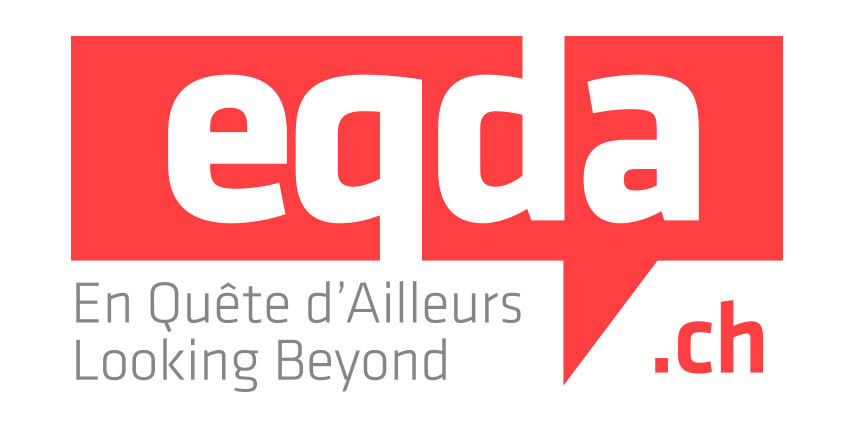UN REPORTAGE DE BINOD GHIMIRE AU NEPAL

 June 27, 2014
June 27, 2014Deepak Bishwakorma wanted to enter the US illegally but ended up in a refugee camp in Switzerland after his handlers took off with his passport and money and dumped him enroute in France. Deepak is waiting for his hearing date with the Swiss authorities, who will decide whether he’ll get to stay on in Switzerland. But a recent referendum in the Swiss parliament may have made things harder for him to obtain his papers
He was supposed to have clambered over the US-Mexico border, from the Mexican side, as soon as the ladder was set. That’s what the plan had been prior to Deepak Bishwokarma’s leaving Nepal in early 2012. Today, confined to an asylum in Switzerland, he recalls that decision—to stake everything on that plan—as the biggest mistake of his life.
At the Swiss-government run Etablissement Vaudois d’Accueil des Migrants (EVAM) camp, a shelter for immigrants and refugees, at Crissier, Deepak is the only Nepali asylum seeker. Crissier lies on the outskirts of the beautiful city of Lausanne, 50 km from Geneva, and when we reached the camp on a rainy morning on June 4, over a dozen children with African and East-Asian features were busy skating in the camp’s open space. The EVAM authorities were not happy with our decision to meet Deepak and initially told us that he was not willing to meet us; they probably didn’t want an asylum seeker to reveal his feelings to journalists. But after repeated requests, they grudgingly gave us permission to talk to him.
We found him on the fourth floor of the camp, where he was standing before his small 5×8 bedsitter, which he shared with a fellow asylum seeker from Afghanistan. He took us inside his room, which had two beds, a table, two small wardrobes and some utensils. This was where he had been spending all his time over the last two-and-a-half years.
According to Swiss rules, like other asylum seekers, Deepak has to get by on 11 Swiss francs (around Rs 1,100) per day, of which 8 francs are for food, one franc for clothing and the remaining two francs for every other need. He shares a kitchen and a bathroom with 14 others, and there are three toilets for them. Asylum seekers like him are given what’s known as the ‘N permit’, which allows them to work outside the camp, but because the permit has a validity period of just six months, they are not hired by businesses. In addition, there’s a rule in place, according to which, around 80 percent of the income asylum seekers make has to be paid to the EVAM authorities; and this discourages them from finding work outside the camp. If the asylum seekers do not return to the shelter for more than five consecutive nights, their name is cancelled from the camp rolls, and they may even end up getting deported. “We can manage our living costs with the money but there are restrictions on many liberties. It’s an open prison,” Deepak told us. “I made a huge blunder.”
It’s not like things had been easier for Deepak in the past. Displaced from his home in Syangja during the armed conflict in Nepal, the 39-year-old undertook his journey to the US to get away from it all. During the civil war, he had been forced to leave home and escape to India when the then CPN-Maoists had forced him to take up arms. To get away from the war, he had fled Nepal and worked in different restaurants and hotels in India for around a decade. Though his father was a British Army soldier, his father’s death immediately after retirement had created problems for the family. His mother lives in the UK and survives on her husband’s pension, while his two brothers are working in the Gulf. Finding his life in Nepal meaningless without his family, Deepak had grown convinced that trying to gain illegal entry into the US, some two-and-a-half years ago, was a risk worth taking.
In January 2012, Deepak, accompanied by two other Nepalis, left Nepal, full of hope that they would soon start a good life in the US. Their agent, who was supposed to take them to the US, had told them that they would first go to France and then enter the US via Mexico. Their hope of finding a new home was shattered when the agent fled with their passports and the millions of rupees they had paid him.
After struggling to survive for more than a month in France, it was suggested that they try to take refuge in Switzerland: they’d learned that Switzerland had a more liberal approach to dealing refugees than other countries in Europe. “I’m in a dilemma. I cannot go back to Nepal as I have thousands of rupees of loan that I took out to pay the agent, while my plea to obtain a refugee status may be rejected at any time,” he said, looking perplexed. “I pray to god every day that I get the refugee status.” He is getting more and more anxious these days, as the date for his second interview with the Swiss authorities is at hand. He is afraid that if the authorities do not buy his rationale for seeking refuge, he may be deported. It may take more than a decade for the Swiss government to decide on whether to grant him a refugee status or not. And things have started to look even bleaker recently. The Swiss people through a referendum on February 9 voted in favour of instituting stricter asylum laws [in fact the vote was about limiting immigration as such, not asylum seekers]. The controversial decision seems to have transpired as a reaction to the ever-increasing number of applicants seeking asylum in the country. According to the referendum, there will be a cap on the number of asylum seekers [of all migrants, see above], and the Swiss government has already decided to work toward this effect. That may result in the government’s refusing pleas from hundreds of asylum seekers like Deepak. We had actually gone over to the Swiss parliament on June 5, the day after we met Deepak, and we learned from the proceedings that the Swiss government would henceforth make it mandatory for asylum seekers to learn at least one out three languages—French, German or Italian—if they want to apply for permanent residency in Switzerland. The authorities say that the results of the referendum reflect the Swiss public’s weariness with the growing number of asylum seekers in the country.
Though Deepak is learning to speak French—[one of] the official languages of Switzerland—as he prepares to apply for various permits, he isn’t too optimistic about his chances. “The referendum result has made the process more complex and increased the level of uncertainty,” he says, fully aware of the politics in Switzerland. “If they decide to deport me, my humble request to them is to send me to the UK, to my mother.” But according to Swiss law, that request will be impossible to meet.




